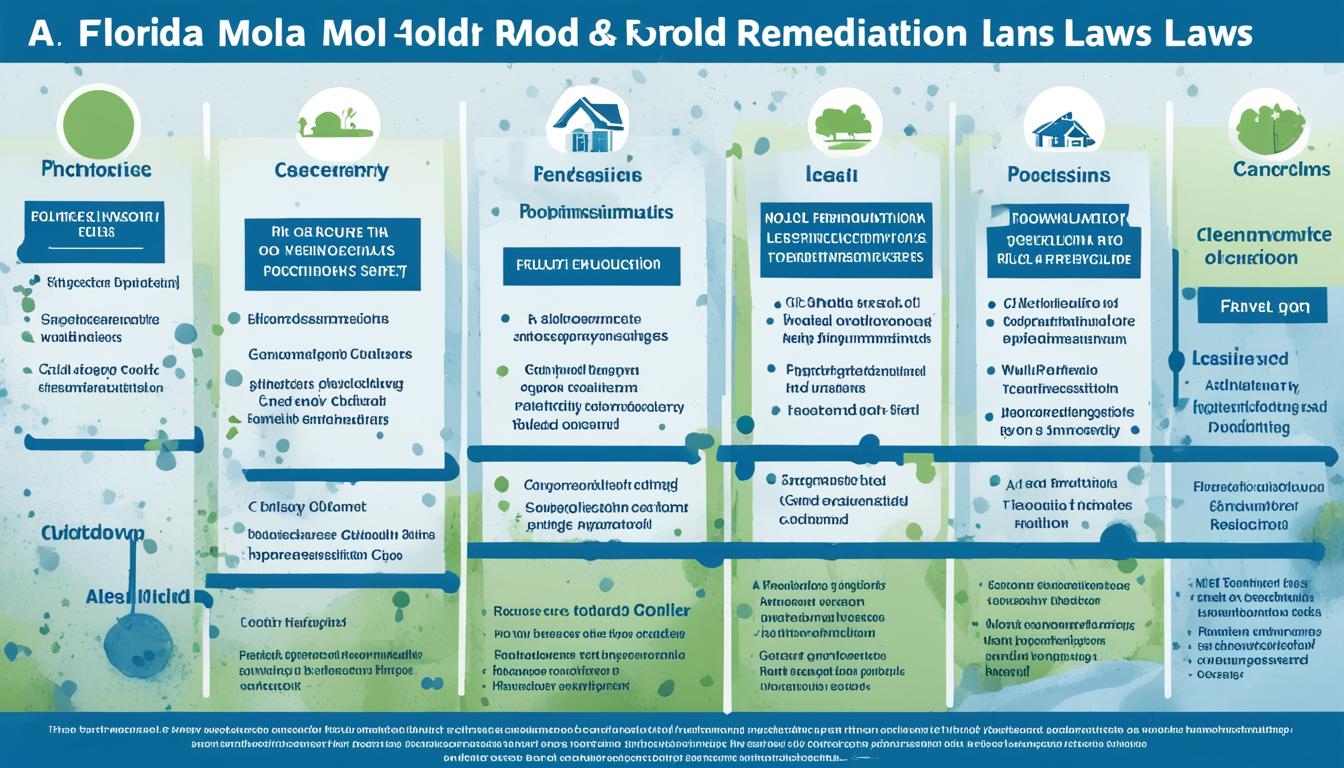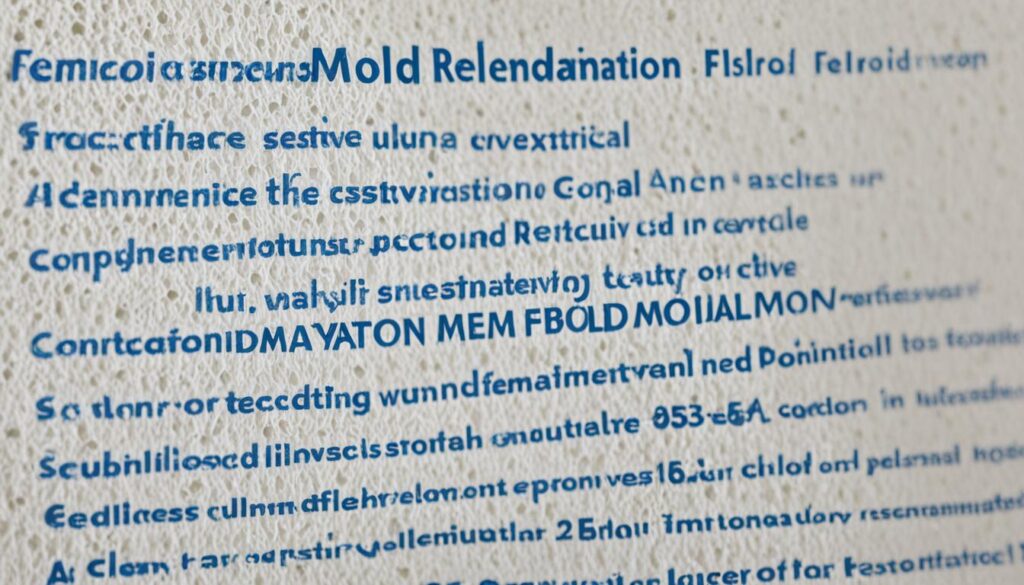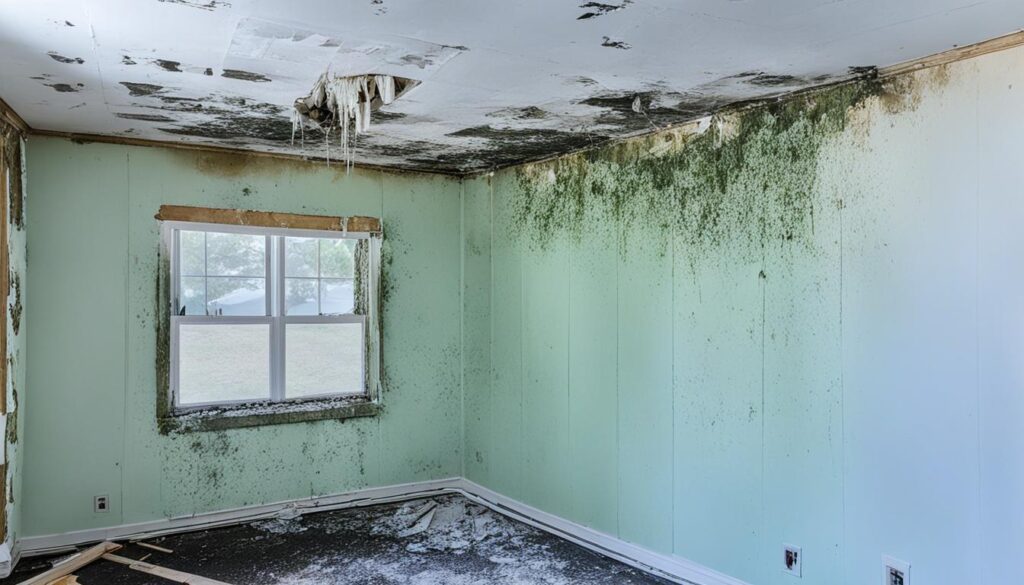
Florida Mold Remediation Laws: Understanding Rules
When it comes to mold remediation, it’s crucial to be aware of the laws and regulations in your state. In Florida, there are specific rules and guidelines in place to ensure the safe and proper handling of mold removal. Whether you are an individual or a business involved in mold remediation, understanding these regulations is vital to avoid legal issues and ensure the well-being of those affected by mold.
Florida is known for its humidity and warm climate, making it a conducive environment for mold growth. To combat this pervasive problem, the state has implemented strict mold remediation laws and legislation to protect its residents. By adhering to these regulations, individuals and businesses can contribute to a healthy living environment and prevent further mold contamination.
In this article, we will explore the mold remediation laws and regulations in Florida, highlighting the key requirements, guidelines, and penalties associated with mold removal in the state. By gaining a thorough understanding of these laws, you can ensure compliance and maintain the safety of your property and its occupants.
Key Takeaways:
- Florida has specific laws and regulations in place for mold remediation to ensure safe and proper handling of mold removal.
- Understanding and complying with these regulations is crucial for individuals and businesses involved in mold remediation in Florida.
- By following the guidelines and requirements, you can maintain a safe and healthy environment and prevent further mold contamination.
- Non-compliance with mold remediation laws in Florida can lead to penalties and legal consequences.
- For professional mold assessments, prevention, and remediation in Florida, contact Fix Mold Miami at 305-465-6653.
Florida Mold Remediation Guidelines: Key Requirements
When it comes to mold remediation in Florida, there are specific guidelines and requirements that must be followed. By understanding and adhering to these regulations, individuals and businesses can ensure that mold removal activities are carried out effectively and safely.
Mold Inspection Requirements
Prior to starting the mold remediation process, it is essential to conduct a thorough mold inspection. This inspection helps identify the extent of the mold problem and determines the appropriate remediation action plan. It is important to hire a licensed mold inspector who can assess the situation accurately and provide an objective assessment.
During the mold inspection, the inspector will examine the affected areas, take samples for laboratory testing if necessary, and measure the moisture levels. The findings from the inspection will guide the remediation process and help in developing an effective mold removal strategy.
Licensing for Mold Remediation Professionals
In Florida, mold remediation professionals must be licensed to legally perform mold removal services. Obtaining a mold remediation license involves meeting specific requirements set by the state. These requirements typically include:
- Completing a state-approved mold remediation training program.
- Fulfilling the necessary work experience criteria.
- Passing a state-administered examination.
- Submitting an application and paying the required fees.
By hiring licensed professionals, individuals and businesses can ensure that the mold remediation process is carried out by qualified and knowledgeable experts who adhere to the industry standards and guidelines.

It is crucial to note that failure to comply with the mold remediation guidelines in Florida can have serious consequences. Non-compliance may result in legal penalties and fines, and it can also lead to ineffective mold removal, putting the health and safety of occupants at risk.
Understanding the mold remediation guidelines, including mold inspection requirements and the licensing process, is vital for anyone involved in mold removal activities in Florida. By following these guidelines, individuals and businesses can ensure the proper handling and elimination of mold, creating a safe and healthy environment for all.
Florida Mold Removal Regulations: Compliance and Penalties
When it comes to mold removal, it’s crucial to understand and comply with the regulations set forth by the state of Florida. Failure to adhere to these laws can result in severe consequences and legal penalties. In this section, we will explore the compliance requirements and potential penalties associated with Florida’s mold removal regulations.
Compliance with Florida Mold Removal Regulations
Florida has implemented specific guidelines and regulations for mold removal to ensure the safety and well-being of its residents. These regulations outline the proper procedures and practices that must be followed to effectively and safely remove mold from affected areas.
One of the key compliance requirements is the use of licensed mold remediation professionals. In Florida, it is mandatory for individuals and businesses engaged in mold removal to hold the appropriate licenses issued by the Department of Business and Professional Regulation (DBPR). These licenses ensure that the professionals have the necessary training and expertise to handle mold removal projects in compliance with state regulations.
Additionally, the state has established guidelines for the containment and disposal of mold-contaminated materials. Proper containment measures must be taken to prevent the spread of mold spores during the removal process. Mold-contaminated materials should be disposed of in accordance with the guidelines set by the Florida Department of Environmental Protection (DEP).
Potential Penalties for Non-Compliance
Non-compliance with Florida’s mold removal regulations can lead to significant penalties and legal actions. The state takes mold-related issues seriously and ensures that violations are appropriately addressed to protect public health and safety.
Penalties for non-compliance can include fines, injunctions, and potential liability for damages resulting from the failure to properly address mold issues. The severity of the penalties depends on the nature and extent of the violation, with repeat offenders facing more severe consequences.
“It’s essential for individuals and businesses involved in mold removal to understand and comply with Florida’s regulations to avoid legal repercussions and ensure the health and safety of those affected.”
In addition to the legal penalties, non-compliance with mold removal regulations can also result in reputational damage for individuals and businesses. Failing to follow the established guidelines can undermine trust and credibility in the industry, potentially impacting future business prospects.
It’s important to note that compliance with Florida’s mold removal regulations not only protects individuals and businesses from potential penalties but also ensures the health and well-being of occupants in mold-contaminated properties. By adhering to these regulations, professionals, and property owners demonstrate their commitment to maintaining safe and healthy living environments.

Conclusion
In conclusion, understanding mold remediation laws and regulations in Florida is crucial for individuals and businesses involved in mold remediation activities. By adhering to the guidelines and requirements set forth by the state, one can ensure that mold removal is carried out safely and within the confines of the law.
Compliance with these regulations helps protect the health and well-being of occupants and prevents further mold growth and contamination. It also safeguards the reputation and credibility of mold remediation professionals and businesses by instilling trust in their services.
For expert assistance with mold assessments, prevention, and remediation in Florida, consider contacting Fix Mold Miami. They are recognized as the highest-rated provider in the state for mold assessments and remediation, ensuring quality and reliable services to address your mold-related concerns. Give them a call at 305-465-6653 for a professional mold assessment and guidance in maintaining a safe and mold-free environment.




